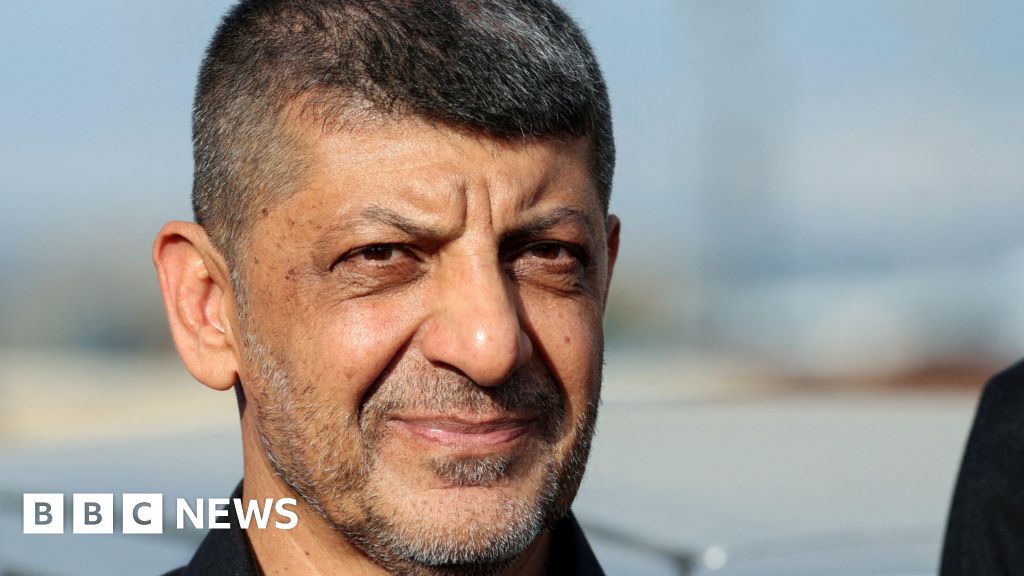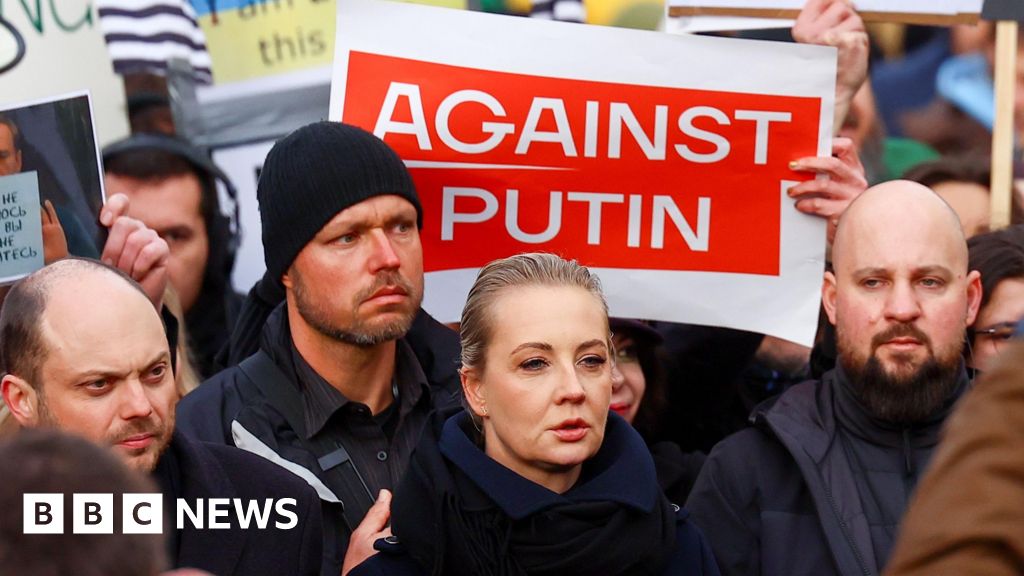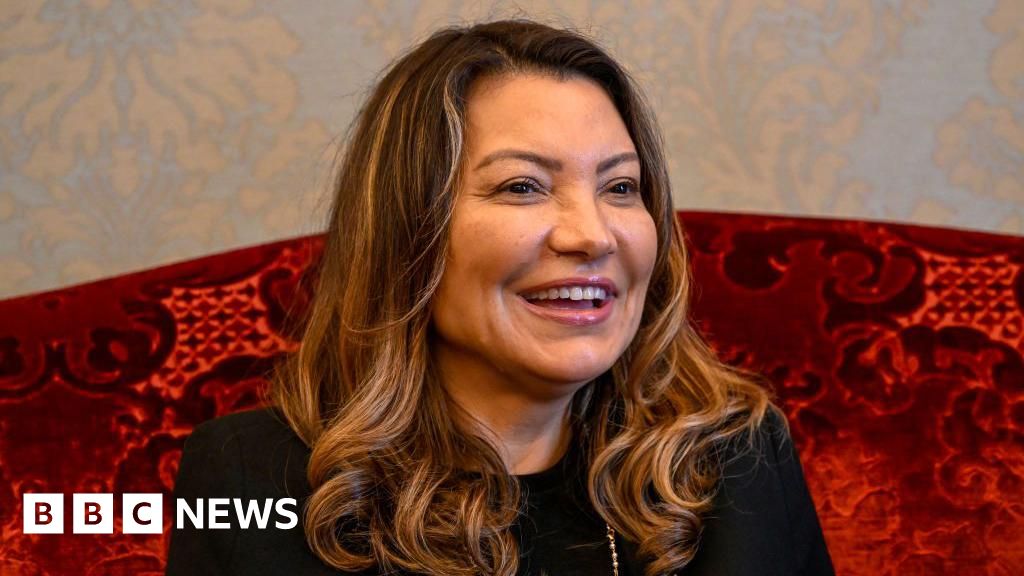ARTICLE AD BOX
By Hugo Bachega
BBC News, Lviv, Ukraine
Image source, Family picture
Image caption,Yuriy and his father, Ruslan, were trying to get humanitarian aid when a Russian soldier stopped them
At around 11:00 on 17 March, Yuriy Nechyporenko and his father, Ruslan, were cycling to Bucha's administration building where aid was being handed out. Electricity, gas and water had been cut, and essentials were in short in short supply in the town, one of the first to be occupied by Russian forces as they advanced on the capital Kyiv.
Yuriy and his father hoped to pick up some medicine and food. On Tarasivska St, Yuriy said, a Russian soldier stopped him and his father. They immediately raised their hands.
Speaking to the BBC by phone alongside his mother, Alla, the 14-year-old gave his account of what happened next. "We told them that we weren't carrying any weapons and that we didn't pose any danger," he said.
"Then my father turned his head my way, and that's when he got shot… He was shot twice in the chest, right where the heart is. Then he fell."
At that point, the teenager said, the soldier shot him in his left hand and he fell too. While he was on the ground, he said, he was shot again, this time in the arm.
"I was lying on my stomach, I couldn't see anything that was happening around me," Yuriy said. The soldier, he said, shot again, aiming at his head. "[But] the bullet went through my hood."
The same soldier, Yuriy said, shot again, this time at his father's head. but Ruslan was already dead. "I had a small panic attack, lying there with my wounded arm underneath me. I saw that my hand was bleeding," he said.
It was only after a while, when the soldier went behind a tank, that Yuriy got up and ran, he said.
Image source, Family picture
Image caption,Yuriy shows wounds that, he says, were caused by a Russian soldier in Bucha
The BBC has not independently verified the details of Yuriy's account, but it comes as evidence grows of atrocities committed by Russian forces while they were in control of Bucha and other towns north of Kyiv.
In Bucha alone, bodies of dead men were found lying in the street, many with extensive wounds. Some had been shot through the temple, as if executed. Others had their hands or legs tied behind their backs. Some had clearly been run over by tanks.
Many of the bodies were seen along a stretch of Yablonska St, just 2km (one mile) from the street where Ruslan is said to have been killed.
Yuriy's mother Alla told the BBC how she had gone to see her husband after the teenager returned home and told her what had happened. She thought Yuriy could be wrong, and that Ruslan was wounded, in need of medical help.
"My son begged me not to," Alla said. "He said they would kill me too."
When she tried to walk down the street, she said, her neighbours stopped her. "[They] told me not to go further, saying the Russians were killing everyone in the territories under their control."
The next morning, Alla got her mother to help. Wearing white scarves, they went to the site of the shooting. Her mother talked to Russian soldiers and they managed to get through. They finally collected Ruslan's body, and brought it home.
A photograph of the partially covered body, taken by Alla and shared with the BBC, appears to confirm Yuriy's testimony. It shows a gunshot wound to the right side of the chest, near the heart.
Ruslan, a lawyer, was 49 when he was killed. He was "active in the community," Alla said. "He couldn't just sit in the shelter and wait. So, he was volunteering and helping people."
They buried him in the garden of the family house.
Yuriy said the soldier who killed him was clearly Russian. His uniform was dark green, he said, typical of the Russian army. "I saw that on his flak jacket it was written 'Russia' in Russian," he said.
"We were no danger to the military, we were civilians, wearing white scarves to show that," Yuriy said. "It's very stupid."
Additional reporting by Svetlana Libet

 2 years ago
18
2 years ago
18








 English (US)
English (US)